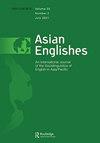英语教师的“新”等级制度:作为新自由主义、种族化和性别化主体的“半本土”英语教师
IF 1.8
Q1 LINGUISTICS
引用次数: 3
摘要
摘要本文对理解母语为英语的教师(NEST)和非母语为英语教师(NNEST)问题的二元导向方法提出了挑战。它打开了一个名为“半母语英语教师”(HNEST)的新颖术语的包装,该术语出现在一所面向日本学生的在线英语学校的网站上。文章还考察了三个HNEST的特权-边缘化经历。对该网站的分析表明,多模态表征默认地生成了英语教师的“新”层次结构,预设的NEST、HNEST和NNEST类别从上到下排列。虽然这种等级制度表面上看起来是“新的”,但它强化了旧的、限制性的理想化和本质化话语。同时,对参与者访谈的分析表明,特权边缘化并不是统一而明确的经历。这种特权-边缘化的复杂流动性在更广泛的新自由主义、种族和性别话语中动态交织。本文章由计算机程序翻译,如有差异,请以英文原文为准。
A ‘new’ hierarchy of English teachers: the ‘half-native’ English teacher as a neoliberal, racialized and gendered subject
ABSTRACT This article challenges binary-oriented approaches to understanding the issue of the native English-speaking teacher (NEST) and the non-native English-speaking teacher (NNEST). It unpacks a novel terminology called the ‘half-native English-speaking teacher’ (HNEST) that appears on the website of an online English school for Japanese students. The article also examines the privilege–marginalization experiences of three HNESTs. The analysis of the website shows that the multimodal representations tacitly generate a ‘new’ hierarchy of English teachers, with presupposed NEST, HNEST and NNEST categories arranged from top to bottom. While this hierarchy appears ‘new’ on the surface, it reinforces old and restricting discourses of idealization and essentialization. The analysis of the participants’ interviews, meanwhile, suggests that privilege–marginalization is not uniformly and categorically experienced. This complex fluidity of privilege–marginalization is dynamically interwoven in broader discourses of neoliberalism, race and gender.
求助全文
通过发布文献求助,成功后即可免费获取论文全文。
去求助
来源期刊

Asian Englishes
LINGUISTICS-
CiteScore
3.30
自引率
18.80%
发文量
34
期刊介绍:
Asian Englishes seeks to publish the best papers dealing with various issues involved in the diffusion of English and its diversification in Asia and the Pacific. It aims to promote better understanding of the nature of English and the role which it plays in the linguistic repertoire of those who live and work in Asia, both intra- and internationally, and in spoken and written form. The journal particularly highlights such themes as: 1.Varieties of English in Asia – Including their divergence & convergence (phonetics, phonology, prosody, vocabulary, syntax, semantics, pragmatics, discourse, rhetoric) 2.ELT and English proficiency testing vis-a-vis English variation and international use of English 3.English as a language of international and intercultural communication in Asia 4.English-language journalism, literature, and other media 5.Social roles and functions of English in Asian countries 6.Multicultural English and mutual intelligibility 7.Language policy and language planning 8.Impact of English on other Asian languages 9.English-knowing bi- and multilingualism 10.English-medium education 11.Relevance of new paradigms, such as English as a Lingua Franca, to Asian contexts. 12.The depth of penetration, use in various domains, and future direction of English in (the development of) Asian Societies.
 求助内容:
求助内容: 应助结果提醒方式:
应助结果提醒方式:


